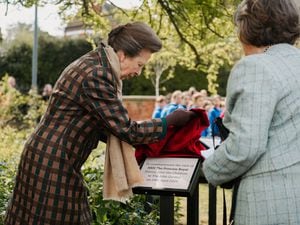Shrewsbury serial killer Robin Ligus chillingly told fellow prisoner he had murdered others
The discovery of the body of man in his burnt-out car in the Shropshire countryside in 1994 sparked a murder inquiry that was not to be resolved for another 13 years.
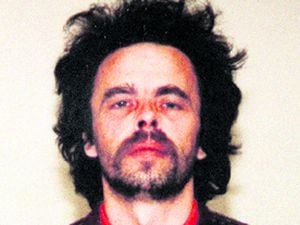
Trevor Bradley was a 53-year-old antiques dealer from Ludlow, a man who would go door-to-door buying and selling.
His body was found in the footwell behind the front seats of his burned-out white Vauxhall Nova.
Why he had become the victim of murder was a complete mystery. At one time police thought a valuable painting could unlock the secret to the crime.
Six months later 57-year-old Brian Coles was found dead at his Higher Heath home near Whitchurch.
Behind the scenes police continued to try to piece together the circumstances of Mr Bradley’s death. A £1,000 reward was offered and years later his body was exhumed from a cemetery in his home town.
In 2009 police had enough evidence to link the death with Robin Ligus, then 58. The killer - whose death at the age of 70 was confirmed yesterday - was charged with Mr Bradley’s, Mr Coles’s and another man’s murder.
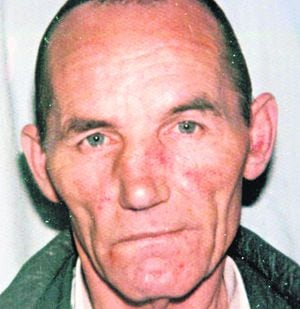
Ligus was already serving a prison sentence for murdering 75-year old Robert Young, during a burglary in 1994 in his Shrewsbury home and it seems, has confessed to another prisoner that he had murdered others and wanted to be known as a serial killer.
He was also charged with the murder of Bernard Czyzewska, found dead in the River Severn in 1994. At his trial in 2011 the jury was told he had committed all four murders to get cash to fund a drug addiction.
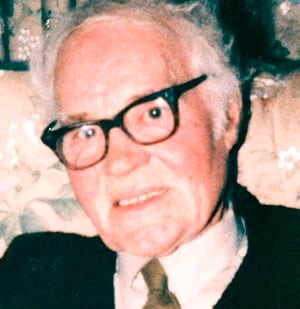
He was recorded making the admissions in interviews with police as well as medical, legal and academic parties.
Ligus was judged mentally unfit to take part in his trial and the jury had to decide whether he was responsible for the unlawful killings rather than be judged guilty or not guilty. The jury decided he was responsible for the deaths of Mr Bradley and Mr Coles.
Ligus, a former painter and decorator, was detained in a secure hospital indefinitely following the jurors’ ruling.
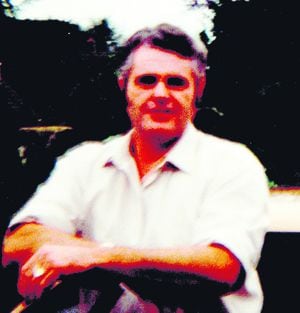
It was Ligus’s own confessions which proved the most compelling evidence in the trial and eventually led to a jury delivering a verdict of “case proved” at Birmingham Crown Court.
The former painter and decorator is already serving a life sentence for murdering pensioner Robert Young also in 1994.
His murder admissions, first made to prison mates in 1997 and then to a psychologist and police in 2000, provided a bedrock for the investigation.
Ligus also admitted having committed a fifth murder in which he drowned a man in the River Severn but police had “insufficient grounds” to press charges. The court heard that he was a drug addict in the early 1990s and carried out burglaries across the county to fund his heroin and cocaine habit. Following a stroke in 2003 his health rapidly deteriorated and he was unable to give evidence or even plead in the recent trial.
Mr Bradley’s death remained a mystery to detectives for almost two decades with many appeals for information.
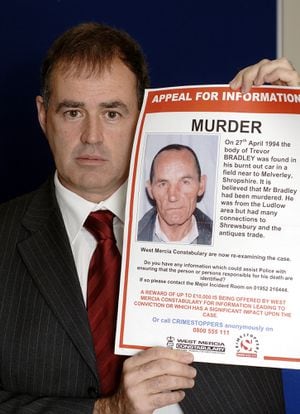
The body of the 53-year-old former antiques dealer from Ludlow was found lying behind the front seats of his burnt-out Vauxhall Nova, in remote farmland in Melverley, on April 26, 1994.
His remains were so badly burnt they had to be identified using X-rays.
During the trial the jury heard excerpts of a conversation Ligus had with fellow inmate Anthony Murray in Gartree Prison in 1998. Mr Murray was wired up and made the secret recordings on his solicitor’s advice.
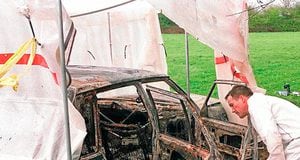
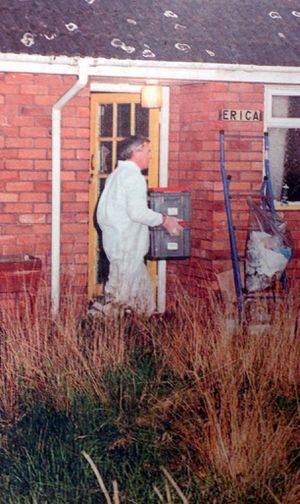
When asked about Mr Bradley’s death, Ligus said: “Knocked him spark out, lying there, you know, rifled through his pockets and I found £2,000.
“I thought, ‘Liverpool next day to score’. I though ‘great’ and er, dragged him into the car. He was only a small bloke so I, I could, managed to lift him into the car, went in the boot. Got a can of petrol.
“Because you’ve got to remember he was me brother-in-law. He comes around and lives through this, you know, he, he’s goin’ to go straight to the Old Bill and they would have got me bang to rights.
“So I had to get rid of the evidence. I thought the only way out to do this is to burn the car out completely with him in it.”
Police probes into Mr Coles’s death were closed less than a year after he died when an inquest concluded he suffered head injuries from a series of falls. The 57-year-old bachelor was found dead on October 14, 1994, at his home in Higher Heath, near Whitchurch. Officers broke in after being alerted by neighbours and a full-scale incident room was set up.
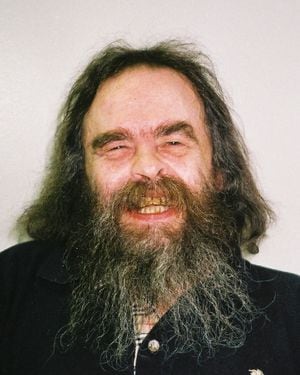
Investigators found no sign of “forcible entry” but the first officers at the scene suspected foul play because of the injuries to Mr Coles and signs of disruption.
Pathologists continue to disagree as to whether his injuries were more likely the result of an assault or a series of accidental falls. However, the jail cell tapes heard Ligus confessing to a murder he committed in Whitchurch, believed to be Mr Coles. He said: “... climbed through the kitchen window, which was open. Had a root around the house. Went upstairs. Out of the bedroom comes a bloke (laughter).
“I couldn’t believe it. We, you know, just stood there lookin’ at each other. He says, ‘I’m goin’ to get the police. What are you doin’?’.
“I says ‘Give us your money’. I grabbed hold of him. I says, ‘Give us your money’. I had me iron bar in me hand.
“I says ‘Give us your money or you’re dead’ so he pulled a wallet out. There was about seventy quid. ‘Give me that’ I says, smacked him right across the head with the iron bar. Pushed him down the stairs.
“He rolled down the stairs and that’s where he stayed at the bottom.”
An inquest into Mr Czyzewska’s death recorded a verdict of misadventure concluding he fell in the River Severn after drinking.
The 36-year-old former bouncer was found near Porthill Bridge, 11 days after he went missing on November 19, 1994.
Alcohol levels in his blood stream indicated he had drunk about five pints.


